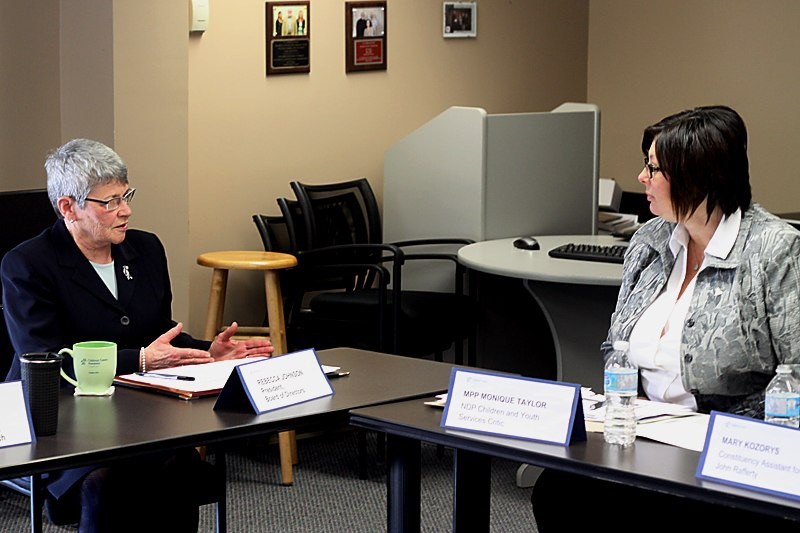The city faces many of the same children’s mental health funding shortfalls as the rest of Ontario, says the NDP’s provincial child and youth services critic.
MPP Monique Taylor was in Thunder Bay on Monday, and among her stops was a meeting with the board of directors for the Thunder Bay Children’s Centre.
She, along with Thunder Bay-Atikokan NDP nominee Mary Kozorys, listened to the members discuss the challenges facing the organization. Taylor described visiting with workers and agencies as her “most important” duty as an opposition critic.
What they heard is much of what she has heard throughout Ontario.
“(Funding) is one of the biggest challenges we face across the province,” Taylor said. “It seems to be the same everywhere.”
John Friday, Thunder Bay Children’s Centre director of management services, says it is difficult to handle growing demand while having questions about whether there is adequate funding.
“There continue to be issues with long-term funding and we’re concerned about the stability of that,” Friday said. “There are increased demands for our services and the complexity of the cases we’re seeing is increasing and as a result our waitlists continue to grow.”
The Thunder Bay Children’s Centre currently has a waitlist with close to 500 names.
Friday added the organization is being forced to be creative to maintain their current service capacity without receiving funding increases.
They have to rely on community partners, such as the United Way, for assistance
Friday attributes the complexity of the cases increasing due to “mental health determinants,” such as poverty, housing and broader health issues.
He thinks the waitlists and higher demand are consequences of previous cuts to the industry.
“A number of years ago the ministry direction was such that there were fewer resources were put into public education and prevention and I think we’re starting to see the impact of that,” Friday said.
“Prevention is a key area and it improves people’s lives immediately. “It’s obviously much better for the clients to deal with the issues early on before they suffer more and before the issues become more significant.”
He added the expanding need is evidence that investment into prevention and education creates longer term savings.
Follow Matt Vis on Twitter: @MattVis
